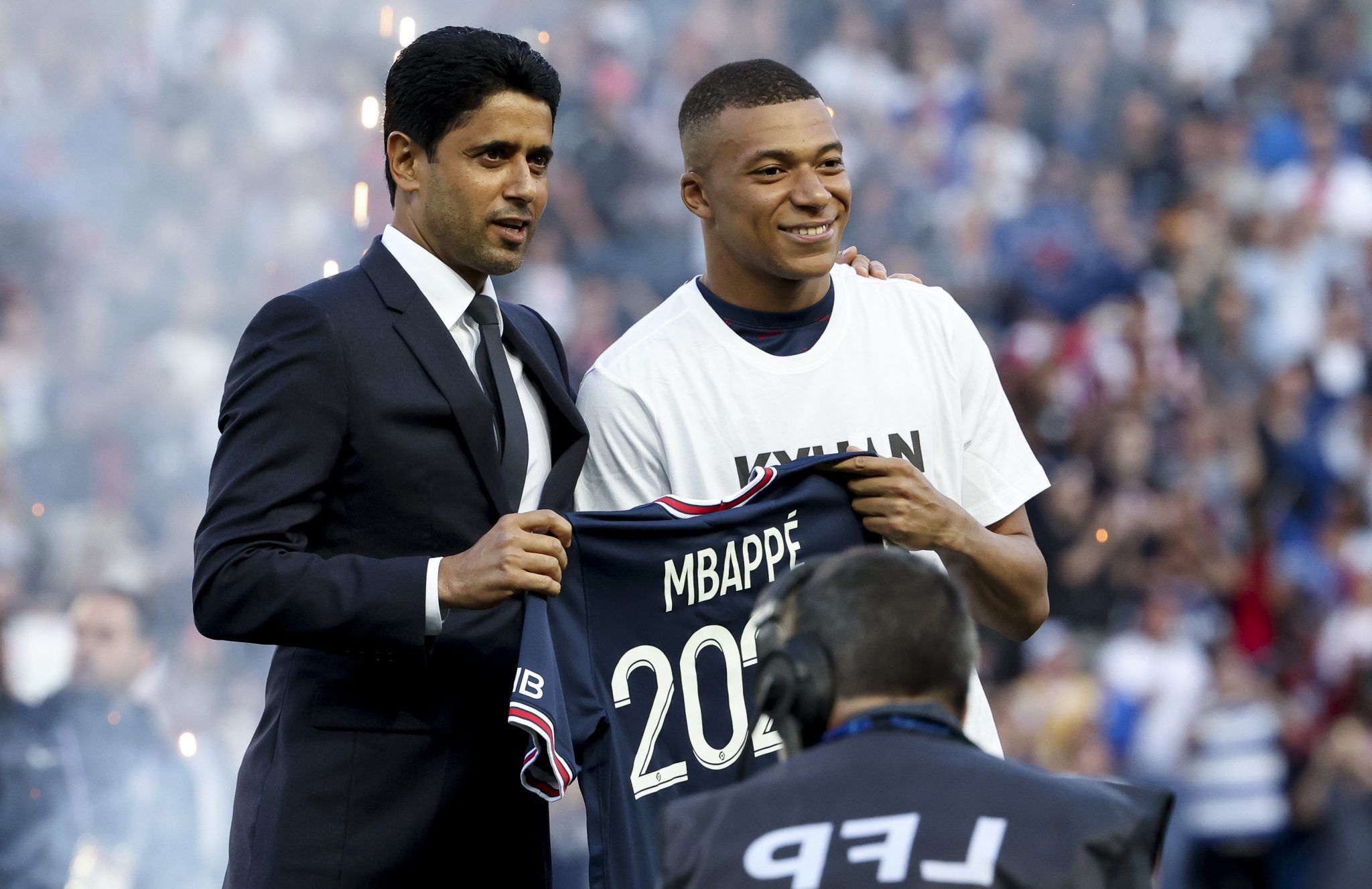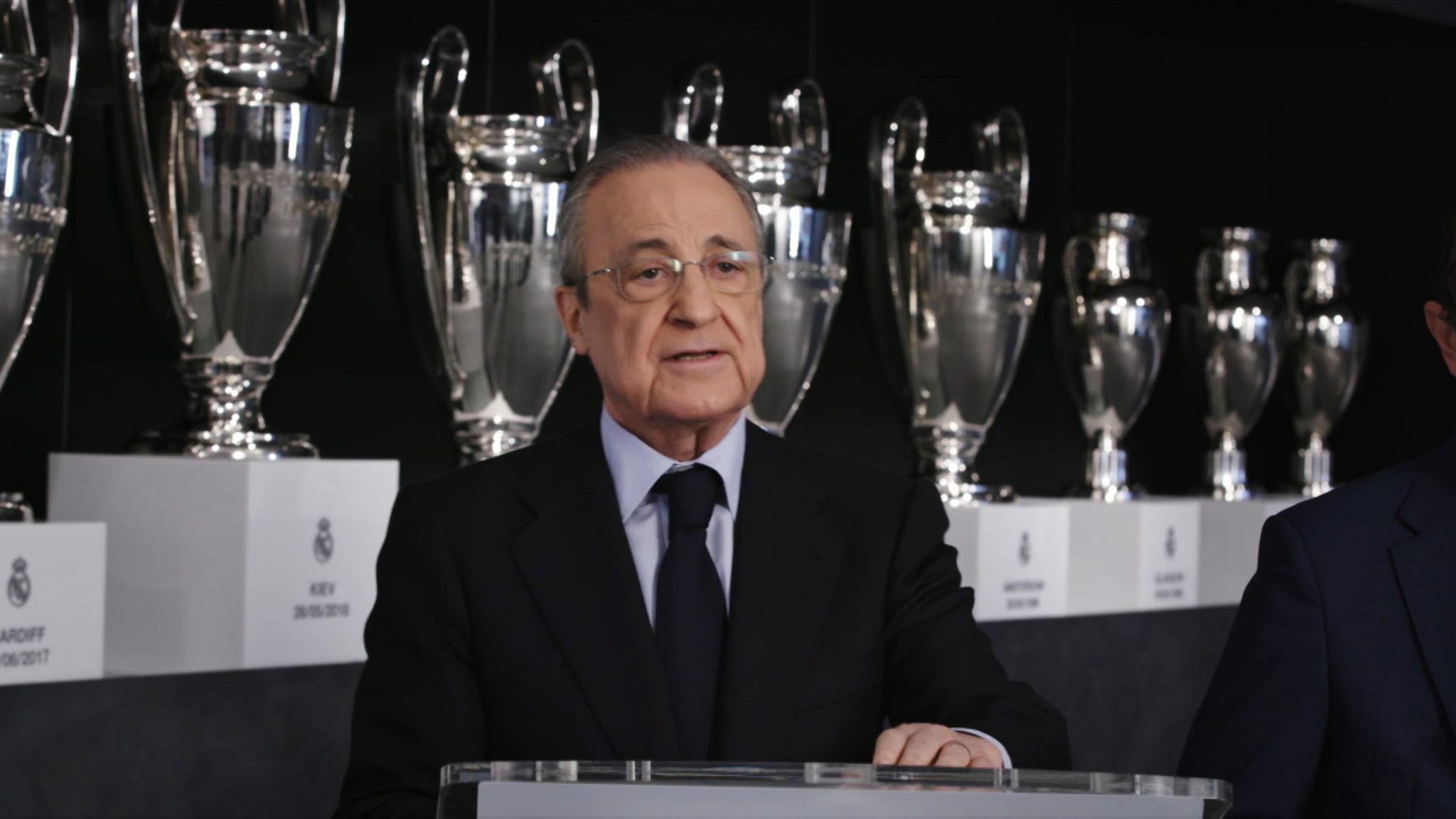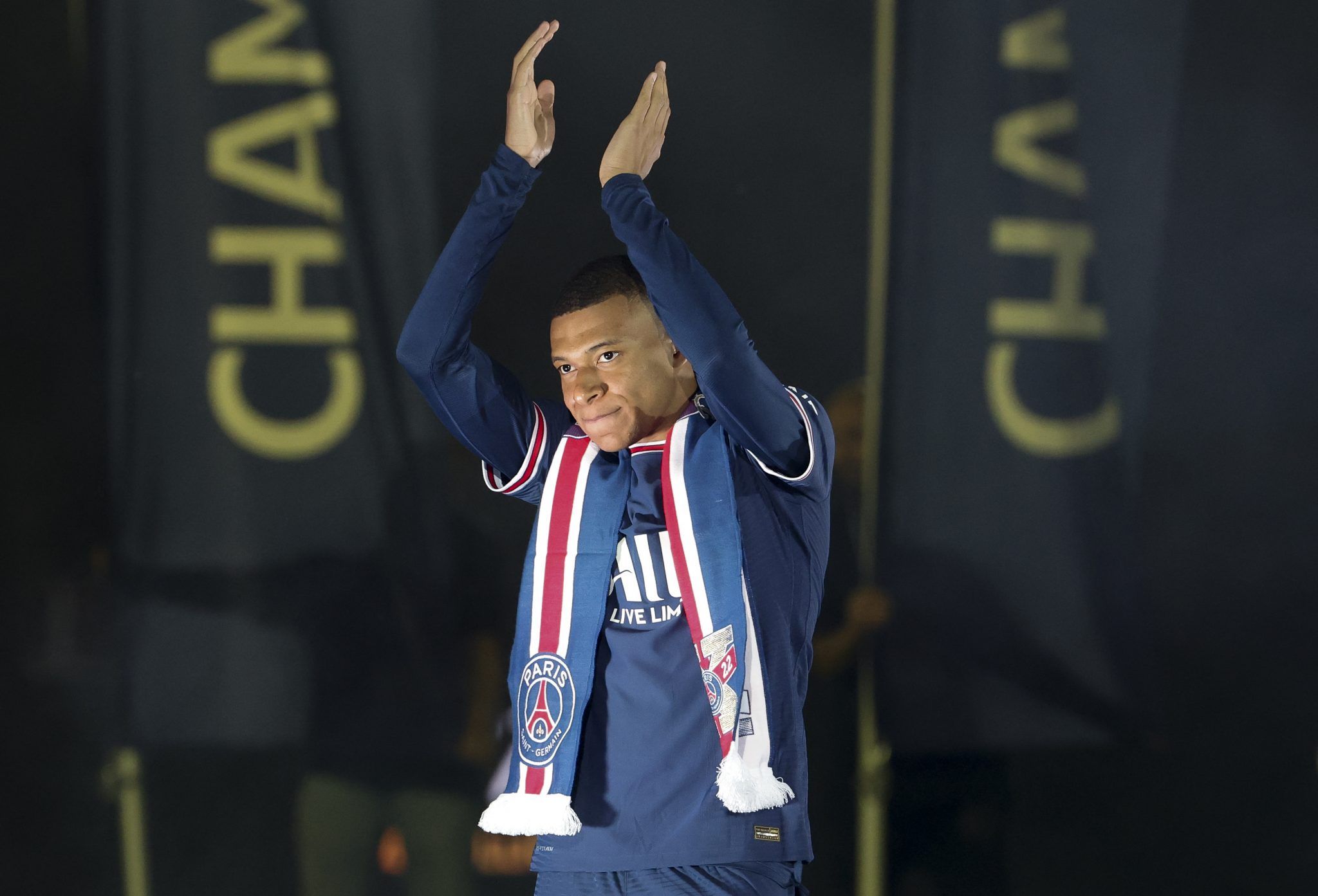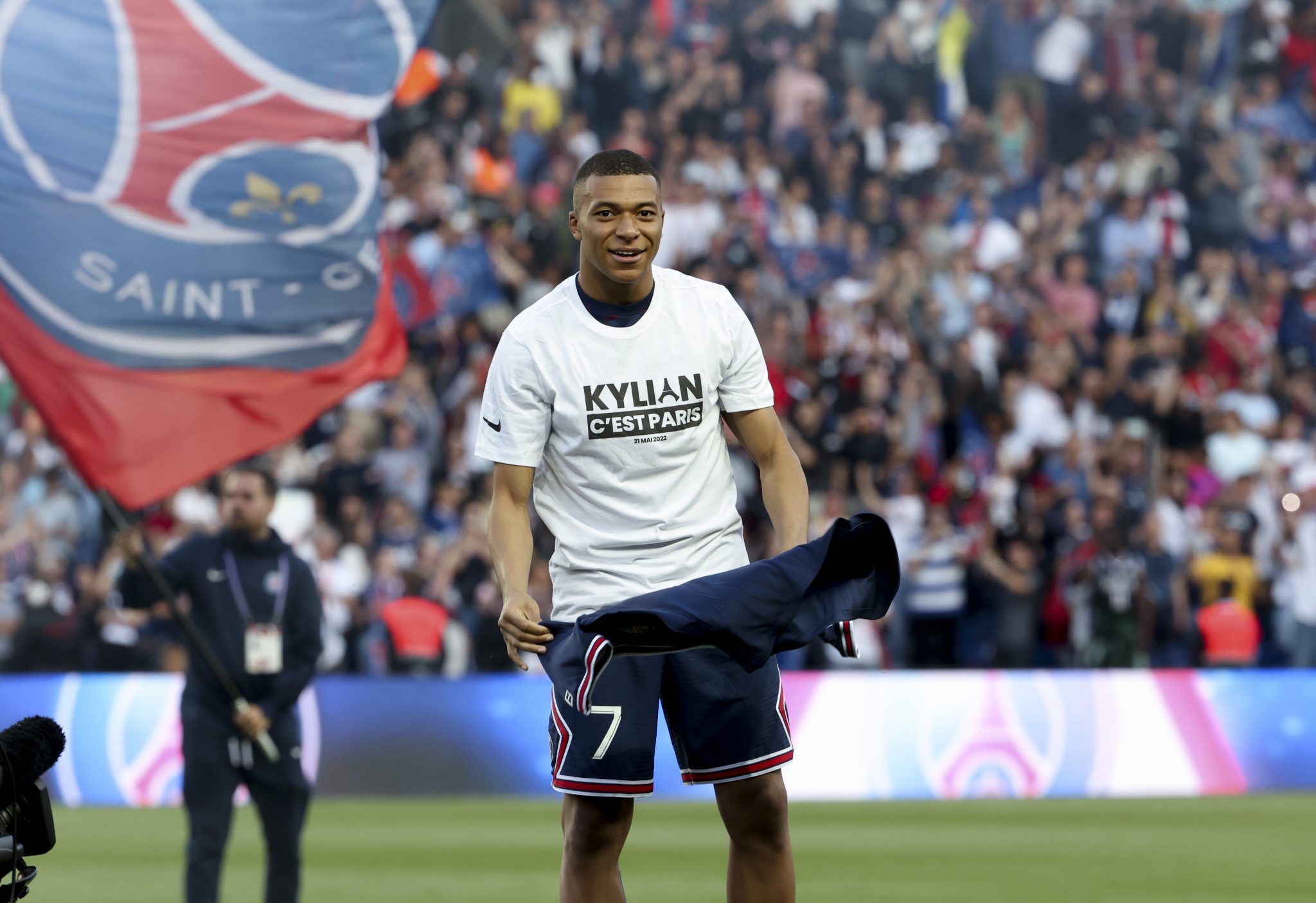

Share
22nd May 2022
03:08pm BST

 It is difficult, in all this, to feel even a shred of sympathy for Florentino Perez, who will presumably not have taken the news well. Here is a man who orchestrated the Galacticos age. From the beginning of his first term as Real president, when he came good on a promise to prise Luis Figo from the Camp Nou, there has been a feeling that when he sets his sights on a player, there is only one outcome.
There is, then, an understandable touch of schadenfreude in seeing Perez jilted in such a manner, amplified by the fact that, barely a year ago, he played such a prominent role in bringing the shameful Super League plot to the brink of existence.
Some, with reason, will take delight in seeing Real miss out. But the sight of PSG winning this battle should dampen any true sense of enjoyment.
It is difficult, in all this, to feel even a shred of sympathy for Florentino Perez, who will presumably not have taken the news well. Here is a man who orchestrated the Galacticos age. From the beginning of his first term as Real president, when he came good on a promise to prise Luis Figo from the Camp Nou, there has been a feeling that when he sets his sights on a player, there is only one outcome.
There is, then, an understandable touch of schadenfreude in seeing Perez jilted in such a manner, amplified by the fact that, barely a year ago, he played such a prominent role in bringing the shameful Super League plot to the brink of existence.
Some, with reason, will take delight in seeing Real miss out. But the sight of PSG winning this battle should dampen any true sense of enjoyment.
 Within minutes of Mbappe's renewal being confirmed came an unexpected twist. A statement from La Liga expressed concern that the deal threatened the economic stability of European football.
It is scandalous that a club like PSG, which last season reported losses of more than 220 million euros after accumulating losses of more than 700 million euros in prior seasons (while reporting sponsorship income at doubtful valuation), with a squad cost around 650 million for this season, can close such an agreement,' the statement read.
In response, it added, the league will file a complaint to UEFA, the French administrative and fiscal authorities and European Union authorities.
It was an astonishing development: that a league could react in such a way to a contract extension was truly unprecedented.
Understandably, Mbappe turning down a move to Spain will have come as a major disappointment to La Liga. They are, after all, a business which has to maximise revenues. It becomes more difficult to pull in the big-bucks TV deals when Cristiano Ronaldo and Lionel Messi have moved on; even more so when football's next megastar slips through their fingers.
Within minutes of Mbappe's renewal being confirmed came an unexpected twist. A statement from La Liga expressed concern that the deal threatened the economic stability of European football.
It is scandalous that a club like PSG, which last season reported losses of more than 220 million euros after accumulating losses of more than 700 million euros in prior seasons (while reporting sponsorship income at doubtful valuation), with a squad cost around 650 million for this season, can close such an agreement,' the statement read.
In response, it added, the league will file a complaint to UEFA, the French administrative and fiscal authorities and European Union authorities.
It was an astonishing development: that a league could react in such a way to a contract extension was truly unprecedented.
Understandably, Mbappe turning down a move to Spain will have come as a major disappointment to La Liga. They are, after all, a business which has to maximise revenues. It becomes more difficult to pull in the big-bucks TV deals when Cristiano Ronaldo and Lionel Messi have moved on; even more so when football's next megastar slips through their fingers.
 La Liga's statement was clearly motivated by their own interests and can easily be viewed as an extreme case of sour grapes. Their argument, however, should not be discounted.
Al-Khelaifi, it should be remembered, is a powerful man in European football these days. Last year he was appointed president of the European Club Association following the resignation of Juventus chief Andrea Agnelli. With that, he was re-elected to UEFA's Executive Committee.
Speaking to the BBC in March he again took aim at the Super League plot - specifically Real, Barcelona and Juventus, the three clubs who have yet to formally withdraw from the competition.
"The problem with ESL clubs is that they don't have stability," he said. "They don't have a long-term financial vision."
Al-Khelaifi may be right about those three clubs, but the fact we are here, in a position where the president of a state-owned club, which has benefited from huge sponsorship revenues drawn from the very country which owns them, is lecturing about financial stability and long-term vision is absurd.
La Liga's statement was clearly motivated by their own interests and can easily be viewed as an extreme case of sour grapes. Their argument, however, should not be discounted.
Al-Khelaifi, it should be remembered, is a powerful man in European football these days. Last year he was appointed president of the European Club Association following the resignation of Juventus chief Andrea Agnelli. With that, he was re-elected to UEFA's Executive Committee.
Speaking to the BBC in March he again took aim at the Super League plot - specifically Real, Barcelona and Juventus, the three clubs who have yet to formally withdraw from the competition.
"The problem with ESL clubs is that they don't have stability," he said. "They don't have a long-term financial vision."
Al-Khelaifi may be right about those three clubs, but the fact we are here, in a position where the president of a state-owned club, which has benefited from huge sponsorship revenues drawn from the very country which owns them, is lecturing about financial stability and long-term vision is absurd.
 PSG's wage bill for the 2020/21 season topped half a billion Euros. That was before the arrival of Messi and, now, the renewal of Mbappe. Put simply, the club operates on a different level to everyone else. Their 'stable long-term financial vision' is tightly bound to the fact they are owned by a wealthy Gulf nation.
And so perhaps Mbappe shows that Real Madrid's days of having things all their own way in the transfer market are over, that their pull is not quite what it once was. That, in isolation, can be seen as no bad thing.
The worry though, is what has replaced them: a state-backed club which, even with spending regulations in place, has shattered world transfer records and forked out unprecedented amounts in wages. Is this really better for the game?
What happens next will be intriguing. Given the PSG president's power at UEFA, it's hard to imagine a scenario where much - if anything - will change.
PSG's wage bill for the 2020/21 season topped half a billion Euros. That was before the arrival of Messi and, now, the renewal of Mbappe. Put simply, the club operates on a different level to everyone else. Their 'stable long-term financial vision' is tightly bound to the fact they are owned by a wealthy Gulf nation.
And so perhaps Mbappe shows that Real Madrid's days of having things all their own way in the transfer market are over, that their pull is not quite what it once was. That, in isolation, can be seen as no bad thing.
The worry though, is what has replaced them: a state-backed club which, even with spending regulations in place, has shattered world transfer records and forked out unprecedented amounts in wages. Is this really better for the game?
What happens next will be intriguing. Given the PSG president's power at UEFA, it's hard to imagine a scenario where much - if anything - will change.Explore more on these topics: